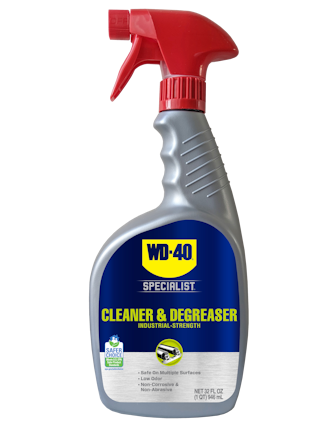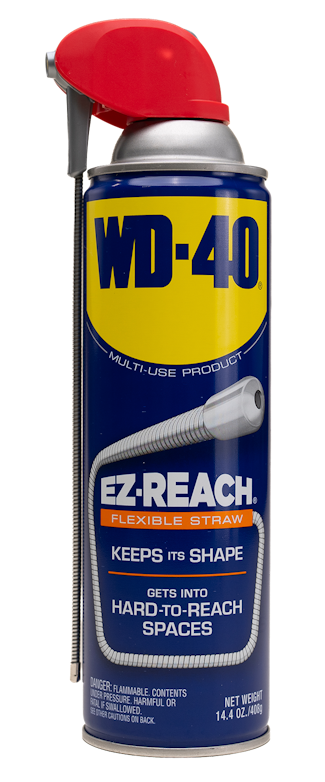Certifications: Why Our 50 State VOC Compliance Matters
Certifications: Why Our 50 State VOC Compliance Matters
<< BackWhy Our 50 State VOC Compliance Matters
In today's industrial landscape, the management of Volatile Organic Compounds (VOCs) stands as a critical challenge, intertwining environmental responsibility with regulatory compliance. VOCs, characterized by their ability to evaporate easily at room temperature, are ubiquitous in numerous products and processes across industries, ranging from paints and solvents to fuels and cleaning agents. However, the pervasive presence of 50 state VOCs carries significant environmental implications, such as smog, ozone depletion, and air pollution, exacerbating respiratory issues and environmental degradation. Recognizing the detrimental effects of 50 state VOCs on public health and the environment, regulatory bodies worldwide have implemented stringent VOC regulations to curb emissions and safeguard human well-being and natural ecosystems.
Understanding VOC Regulations
Regulations on Volatile Organic Compounds (VOCs) are established at the federal and state levels in the United States to control emissions and protect air quality. At the federal level, the United States Environmental Protection Agency (EPA) sets general standards and guidelines for VOC emissions nationwide. These regulations serve as a framework, but each state has the authority to implement stricter regulations tailored to the state's specific needs and conditions, meaning a company must comply with different regulations depending on its geographical location. This variability in limits and compliance requirements can significantly complicate the compliance process for companies seeking to maintain conformity in all states.
Non-compliance with VOC regulations can have serious consequences such as facing potential legal sanctions and fines from regulatory authorities, non-compliant companies may also suffer damage to their reputation and customer relationships. Non-compliance can result in a loss of trust from consumers and other stakeholders, which could negatively impact sales and the long-term viability of the company.
Public Health and Environmental Concerns
Exposure to Volatile Organic Compounds (VOCs), including those regulated by 50 state VOC guidelines, poses significant health risks to individuals, contributing to various respiratory issues and exacerbating air pollution. VOCs can irritate the respiratory system, leading to symptoms such as coughing, wheezing, and shortness of breath. Prolonged exposure to high levels of VOCs has been linked to more severe health effects, including asthma exacerbations, respiratory infections, and even long-term lung damage. Vulnerable populations, such as children, the elderly, and individuals with pre-existing respiratory conditions, are particularly susceptible to the adverse health effects of VOC exposure.
VOCs react with nitrogen oxides in the presence of sunlight to form ground-level ozone, a key component of smog. Ground-level ozone can irritate the eyes, nose, and throat, worsen respiratory conditions, and impair lung function. Furthermore, VOCs can also contribute to the depletion of the ozone layer in the upper atmosphere, which protects the Earth from harmful ultraviolet (UV) radiation.
Implementing measures to minimize VOC emissions, in accordance with 50 state VOC guidelines, can help protect public health, reduce the prevalence of respiratory illnesses, and improve overall air quality. By prioritizing efforts to reduce VOC emissions, we can create healthier environments for current and future generations while promoting sustainable development and protecting the planet.
Moreover, addressing public health and environmental concerns involves utilizing eco-friendly solutions, such as WD-40 Specialist Cleaner & Degreaser and other high-performance lubricants. WD-40 Specialist Cleaner & Degreaser, which is water-based, offers an environmentally conscious alternative for effectively removing grease and grime while minimizing VOC emissions. Similarly, WD-40 Specialist products provide long-lasting protection without compromising environmental sustainability. By incorporating these eco-friendly products into daily operations, businesses can reduce their environmental footprint and contribute to a healthier planet for all.
Compliance Challenges and Solutions
Businesses encounter numerous challenges when striving to achieve 50 state VOC compliance across all states. These challenges include navigating the intricacies of varying state regulations, managing the complexities of supply chains, and ensuring consistent monitoring and reporting of emissions. Additionally, businesses must contend with the costs associated with implementing VOC-compliant practices and technologies, as well as the potential disruptions to operations that may arise during the transition to compliance. Furthermore, staying abreast of evolving regulations and adapting compliance strategies accordingly presents an ongoing challenge for businesses operating in dynamic regulatory environments.
To navigate the complex landscape of 50 state VOC regulations and ensure compliance, businesses can implement several key strategies. First and foremost, businesses should invest in comprehensive compliance management systems that enable centralized tracking and reporting of VOC emissions data. Additionally, establishing clear communication channels with regulatory authorities and staying informed about regulatory updates are essential for staying ahead of compliance requirements. Leveraging partnerships with VOC compliance experts and industry associations can provide valuable insights and guidance on navigating regulatory frameworks effectively. Moreover, implementing proactive measures, such as conducting regular audits and assessments of VOC emissions sources, can help identify areas for improvement and ensure ongoing compliance with regulations. Furthermore, incorporating eco-friendly products such as the WD-40 Specialist Cleaner & Degreaser and other WD-40 Specialist products into business operations can contribute to reducing VOC emissions while maintaining efficiency and performance.
Technology and innovation play a crucial role in developing VOC-compliant products and processes that meet regulatory requirements while maintaining performance and efficiency. Advancements in manufacturing technologies, such as low-VOC coatings and adhesives, enable businesses to reduce VOC emissions without compromising product quality. Similarly, innovations in process optimization and waste reduction can help businesses minimize VOC emissions throughout the production lifecycle. Furthermore, the adoption of digital solutions, such as emissions monitoring sensors and data analytics platforms, empowers businesses to track and manage VOC emissions more effectively. By embracing technology and innovation, businesses can not only achieve compliance with VOC regulations but also drive sustainability and competitiveness in their respective industries.
Economic and Legal Implications
Compliance with 50 state VOC regulations offers significant economic benefits to businesses, including cost savings and enhanced market competitiveness. By investing in VOC-compliant technologies and practices, businesses can reduce operational costs associated with raw materials, energy consumption, and waste management. Additionally, adopting sustainable practices can improve resource efficiency, leading to long-term cost savings and increased profitability. Moreover, demonstrating a commitment to environmental responsibility through 50-state VOC compliance can enhance brand reputation and attract environmentally conscious consumers, thereby creating opportunities for market expansion and growth.
Failure to comply with 50 state VOC regulations can have severe legal consequences for businesses, including fines, penalties, and reputational damage. Regulatory authorities have the power to impose significant monetary sanctions on non-compliant businesses, which can result in financial strain and operational disruptions. Additionally, non-compliance may lead to legal proceedings, enforcement actions, and even business closures in extreme cases. Furthermore, the negative publicity and reputational damage associated with 50 state VOC violations can erode consumer trust, damage brand integrity, and deter potential investors and business partners.
Conclusion
In summary, adherence to Volatile Organic Compounds (VOC) regulations is essential for businesses, offering economic advantages, legal security, and environmental stewardship. While compliance ensures cost savings, market competitiveness, and sustainable growth, non-compliance can result in fines, reputational damage, and operational setbacks. By embracing VOC compliance as a strategic priority and leveraging technology and expertise, businesses can navigate regulatory complexities, mitigate risks, and foster a healthier, more sustainable future for all.
FEATURED PRODUCTS
WANT TO GET MORE TIPS AND TRICKS?
SUBSCRIBE TO THE NEWSLETTER

